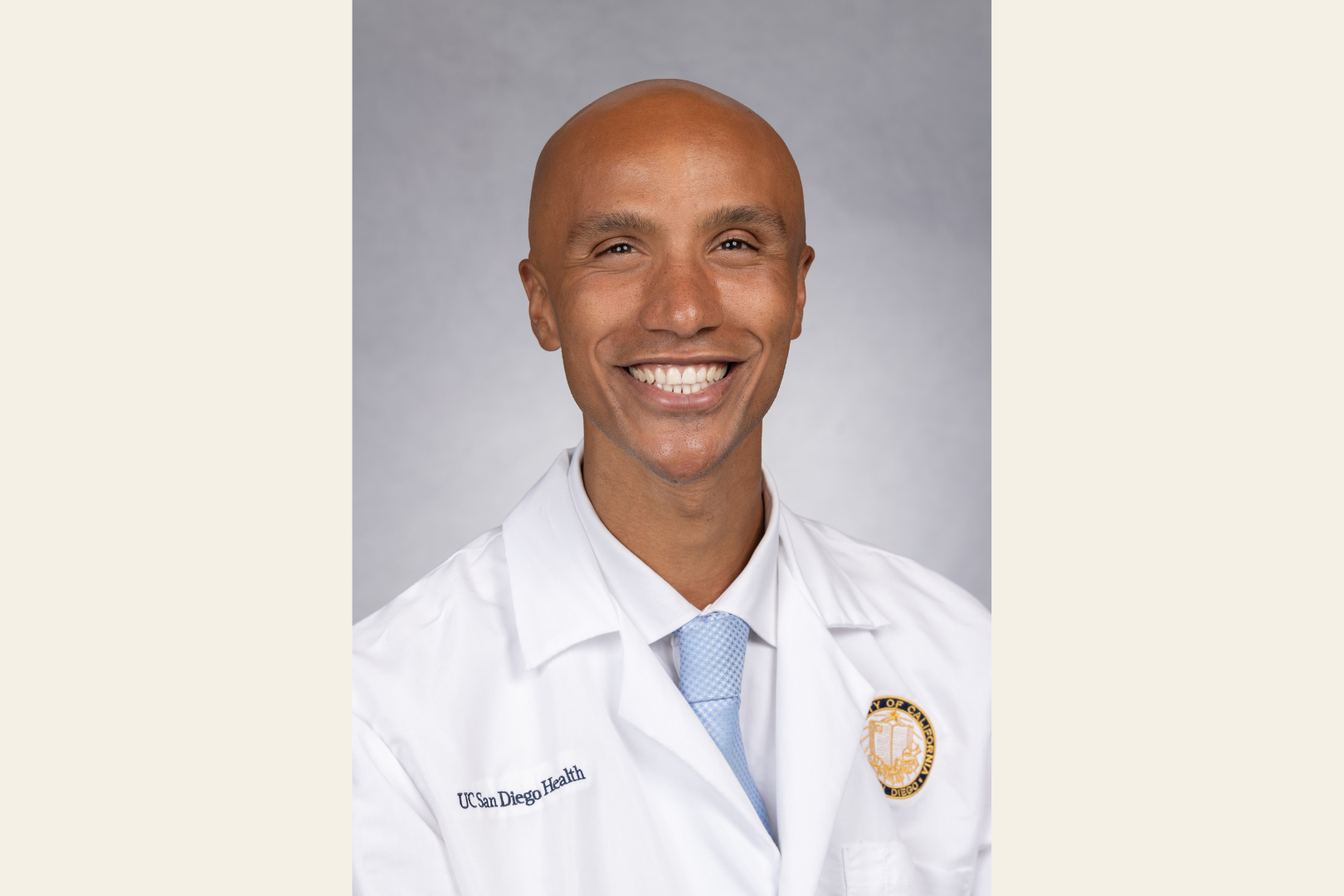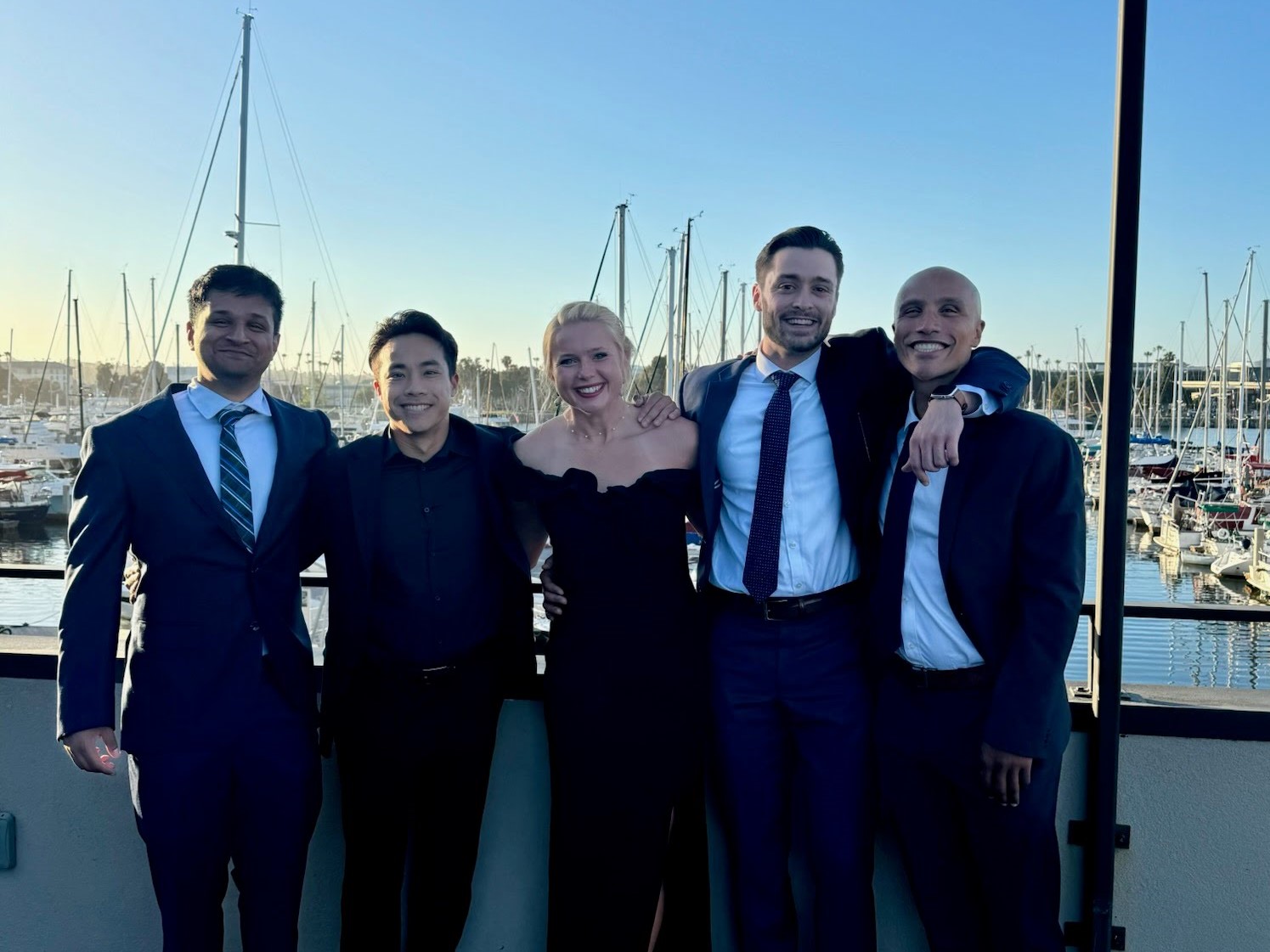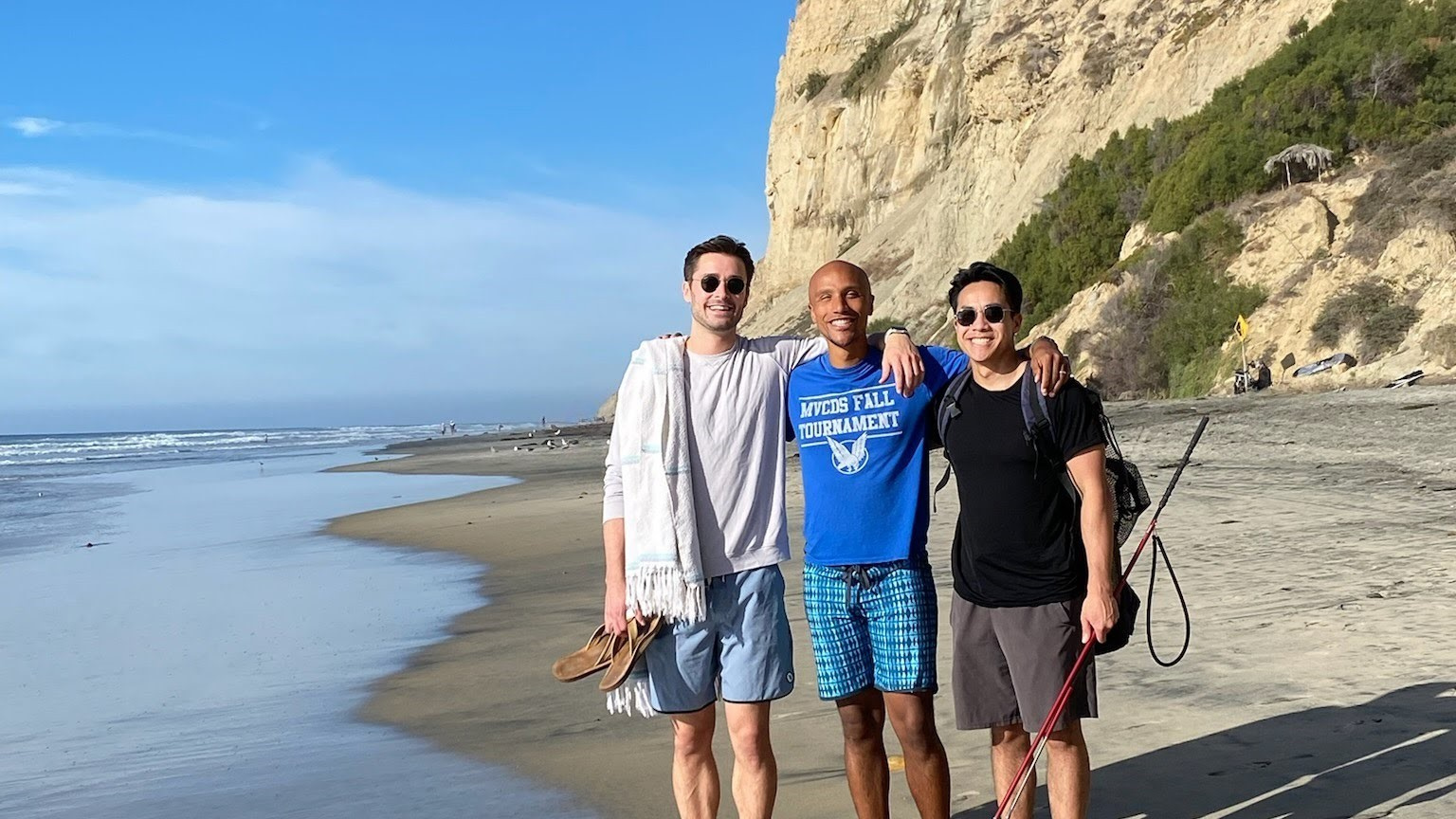
Thank A Resident & Fellow Day with Thaddeus Woodard, M.D.
This year, in the lead up to Thank a Resident & Fellow Day on Friday, February 28, we are highlighting a handful of trainees through a Q&A series online.
Thaddeus Woodard, M.D., is a third-year resident with the Department of Orthopaedic Surgery. Below, we explore his start in medicine, the toughest and most rewarding parts of residency, and his future in surgery.
What drew you to medicine?
My interest in medicine began at a young age as I watched my father navigate a chronic immunological condition. Throughout my childhood, he visited doctors regularly, sometimes multiple times a month. I saw firsthand how healthcare professionals made a profound difference in his quality of life, not just through their expertise but also their compassion. This experience sparked my desire to pursue a career in medicine, where I could have a similar positive impact on people’s lives. I’ve always been drawn to orthopedics. The ability to restore function, alleviate pain, and improve someone’s mobility motivates me every day. I take great pride in ensuring that patients receive the care and attention they deserve and could not have asked for a better place to train.
What is the toughest part of residency, and what keeps you going through it?
The hardest part of residency is call. Being able to respond to highly stressful medical emergencies and consultations at any time of the day or night during a 24-hour stretch is never easy. Thankfully we have great support from ortho techs, our senior residents, and the attendings on call. It is helpful to remind myself of how much being on call is teaching us and what a service we are providing to the community. The complexity of trauma and pathology that we see is vast and unique and will prepare us to be better surgeons. What helps me get through stressful periods of residency is the supportive environment of my program – being able to bounce ideas off of my coresidents or to debrief after a difficult situation always helps me remember that I am not alone in this. In addition, the love and support of my wife, playing soccer, going on runs and walks, and enjoying San Diego when I am not working keeps me going.
What’s been the most rewarding part of being in the UC San Diego residency program?
The relationships I’ve forged with my co-residents and attending physicians over the last 2.5 years. They’ve helped me grow in all aspects of my life and career, from my surgical skills to my decision-making abilities. In turn, reflecting on my own growth in this short amount of time has been incredibly rewarding – I am proud of what I have been able to achieve so far in providing care to patients and I know this program will continue to make me a better surgeon every day.
What do you like most about your fellow residents and the culture at the UC San Diego Department of Orthopaedic Surgery?

I love the sense of camaraderie and the sense of solidarity. From a peer level, I love talking about our experiences and how we can get better. I like having senior residents that I feel comfortable getting feedback from and how willing they are to help us learn. I’ve also really been enjoying teaching the new residents and seeing them rapidly progress.
We have amazing attendings here who are fantastic to work with – they are passionate healthcare providers and educators who truly care about making us great surgeons. They fully want to learn and stay engaged with the education of young surgeons. I like to think I have passed on some cultural knowledge to them as well!
Do you have an idea of which specialty you’re leaning toward?
Yes! I feel pulled towards Spine. Spine surgery is a very complex field that aims to help patients who are experiencing debilitating, life-halting problems due to injury, degeneration, or deformity to the spine. Taking on these challenges to bring relief to these patients is something I feel called to do. I am inspired to understand this challenging field and find the anatomy and surgical techniques used to change these patients’ lives incredibly fascinating and rewarding. When I hear the stories of patients who could benefit from spine surgery, I find myself wanting to improve their quality of life. I will never forget the day I knew I wanted to sub-specialize in spine. It was during my first year of residency where I witnessed a patient walk again following a spine surgery after 10 years of being unable to walk. This experience, coupled with numerous others I have since had, anchors my decision to pursue a career as a spine surgeon.

